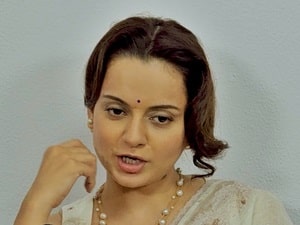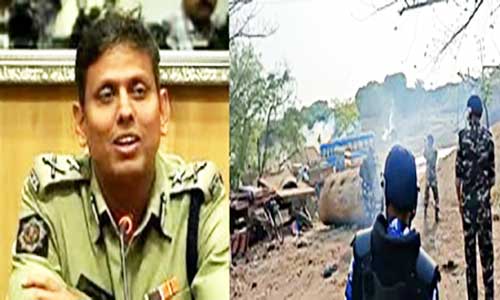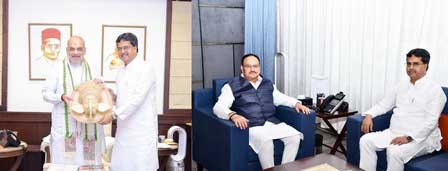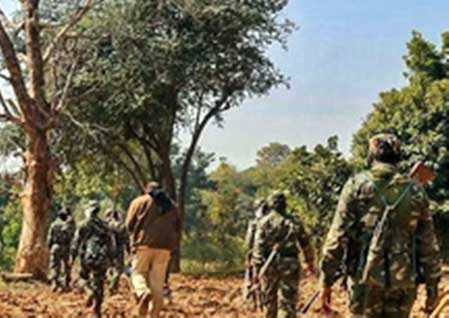Kangana Ranaut, the actor-turned-politician and Lok Sabha MP, has once again found herself at the centre of controversy with her recent remark calling for the return of the now-repealed farm laws.
This latest incident highlights a pattern of provocative statements that raise important questions about her intentions and the broader political implications.
Is Kangana’s behaviour a mere coincidence, or is it part of a calculated strategy?
Kangana’s “bring back farm laws” remarks, made during a press interaction, drew immediate backlash, particularly from her own party, the BJP.
The party swiftly distanced itself from her remarks, emphasising that they do not reflect the party's stance. This incident is particularly sensitive given the upcoming elections in Haryana, where the farming community holds significant electoral power.
The BJP's quick response suggests a desire to manage the narrative surrounding the contentious farm laws, which have already proven detrimental to the party's image.
Kangana issued a public apology, stating, "I take my words back." This backtracking indicates not only the pressure she faced from her party but also reflects the high stakes involved in addressing issues related to farmers, especially in a politically charged environment.
Kangana’s history of controversial statements indicates a recurring theme of provocative remarks aimed at drawing attention and igniting debate.
From her critiques of international figures like Rihanna and Greta Thunberg during the farmers' protests to her dismissal of Rahul Gandhi's heritage, Kangana's comments often serve to polarise opinions and spotlight her persona.
This pattern raises the question of whether these statements are spontaneous outbursts or part of a broader strategy to position herself and her party within the political landscape.
Kangana also suggested that foreign influences, such as the U.S. and China, were involved in instigating unrest during the farmers' protests, further complicating the narrative. Such claims not only enhance her visibility but also appeal to nationalist sentiments, which are a cornerstone of the BJP's ideology.
At the same time, however, the BJP finds itself in a precarious position regarding Kangana's remarks. While her celebrity status and willingness to engage in controversial topics can energise a segment of the party's base, her comments also pose risks. The party has to balance its messaging, especially when addressing sensitive topics like agriculture and farmers' rights.
By distancing itself from Kangana’s statements, the BJP attempts to maintain a moderate image and avoid exacerbating tensions with the farming community, which has been vocal in its opposition to the farm laws.
The timing of Kangana's controversial statements often coincides with significant political events or debates, suggesting a level of calculation behind her remarks. It is plausible that she aims to gauge public sentiment or to rally support around issues that resonate with nationalist themes. This aligns with the BJP's strategy of consolidating its core voter base, particularly in times of political uncertainty.
However, it is equally important to consider Kangana's personal motivations. Her assertive personality and the media attention she garners can be seen as a means of reinforcing her brand as a fearless advocate for certain narratives.
Observers believe that this duality - being both a vocal leader of BJP and a self-styled rebel - may lead her to make statements that are “less about party line” and more about “personal conviction”.






Drugs valued at Rs 71 crore seized in Assam; 2 held
Heroin and highly addictive methamphetamine tablets, valued at Rs 71 crore, were seized during two separate operations in Assam's Kamrup district on Friday, officials said.
One held with cannabis worth Rs 15 Lakh in Sonamura
In a major breakthrough in Tripura Police’s ongoing crackdown on narcotics, a joint team led by Sonamura Police Station seized 325 kilograms of dried cannabis (ganja) from a house in Ananda Nagar village under Sepahijala district’s Sonamura Sub-division
BJP MP launches attack on Sonia Gandhi, Rahul Gandhi over National Herald case
The BJP Yuva Morcha staged a protest against Congress leaders Sonia Gandhi and Rahul Gandhi, accused in the National Herald case, in Agartala on Friday.
Two Bangladeshi women held at Agartala Railway Station
In a coordinated operation carried out on Thursday late night, two Bangladeshi women were arrested from Agartala Railway Station for illegally entering Indian Territory with the alleged intention of travelling to Mumbai via Kolkata.
2 minors among 315 arrested so far in connection with Murshidabad violence: Bengal Police report
A total of 315 arrests have been made so far in connection with the communal violence in Murshidabad district of West Bengal over protests against the Waqf (Amendment) Act last week, including two minors, confirmed the West Bengal Police in its report,
No plan to levy GST on UPI transactions over Rs 2,000: Govt
The Finance Ministry on Friday made it clear that the government is not considering any proposal to levy Goods and Services Tax (GST) on UPI transactions over Rs 2,000.
Tripura CM discusses state govt's key plans with HM Shah, JP Nadda
Tripura Chief Minister Manik Saha on Friday in separate meetings in New Delhi discussed important development plans of the state government with Union Home Minister Amit Shah and Health and Family Welfare Minister J.P. Nadda.
HM Amit Shah's 2026 deadline in sight as Sukma panchayat declared Maoist-free
This signalled a breakthrough in the government’s counter-insurgency and rehabilitation strategy. The mass surrender not only reflects a weakening of Maoist influence but also reaffirms HM Shah’s ambitious deadline as increasingly within reach.